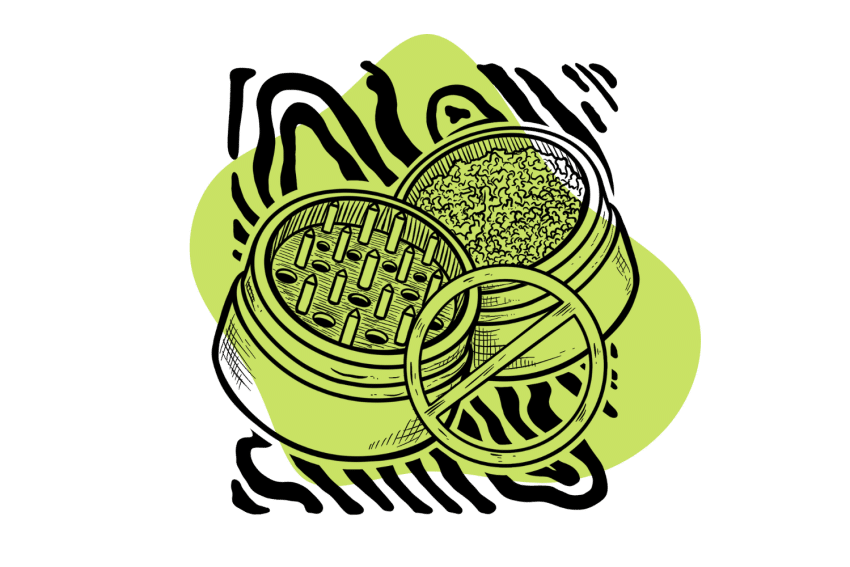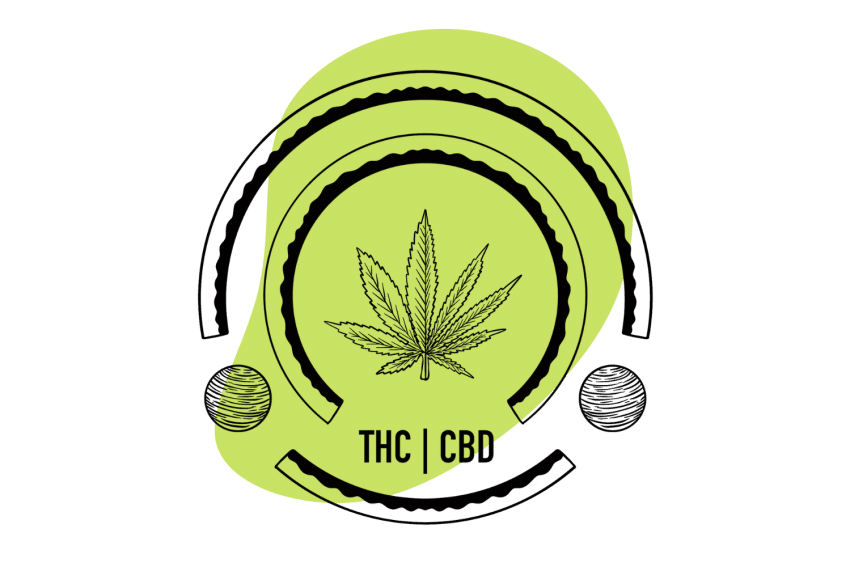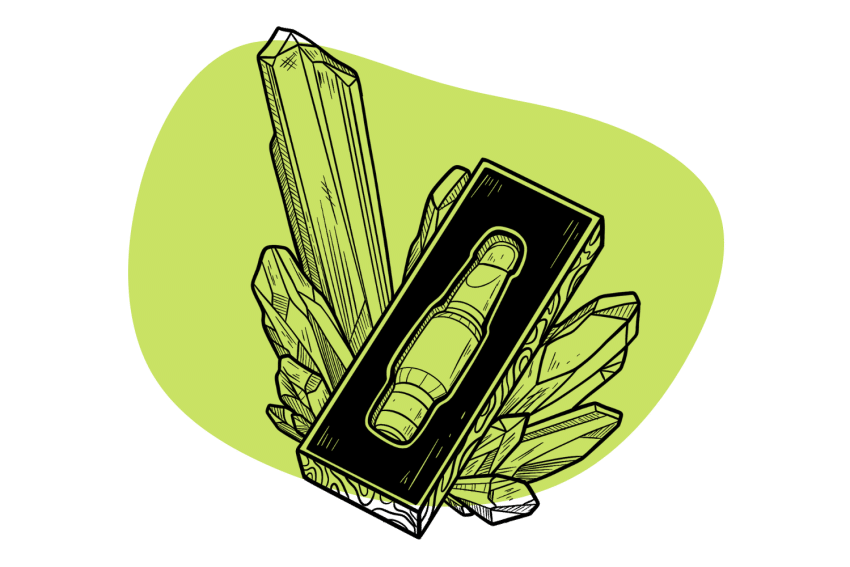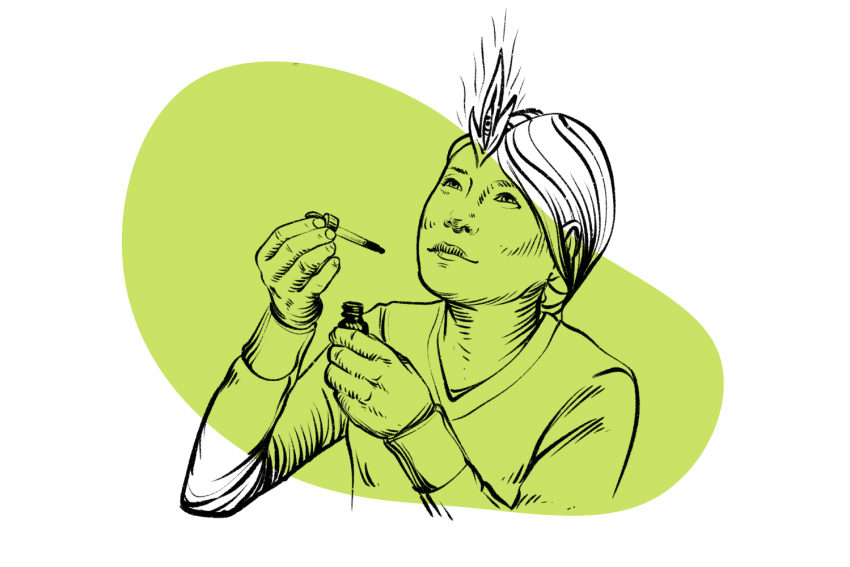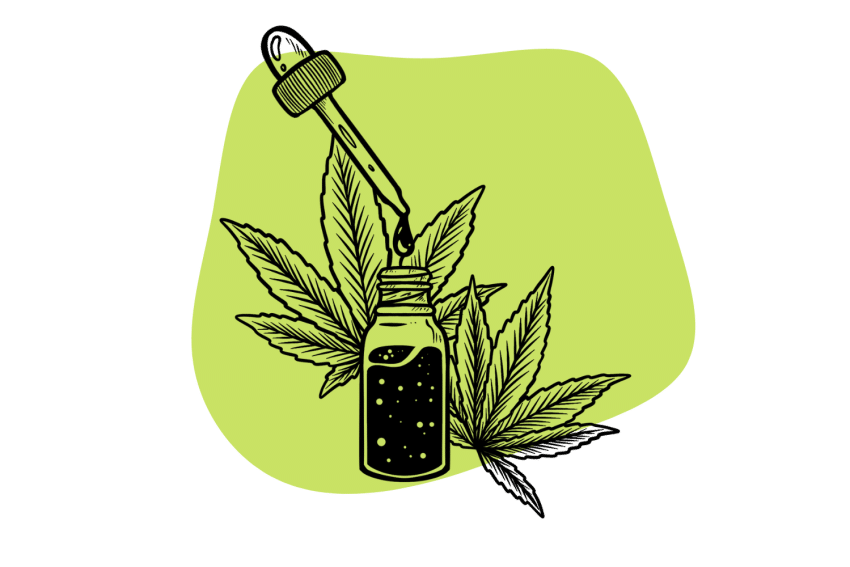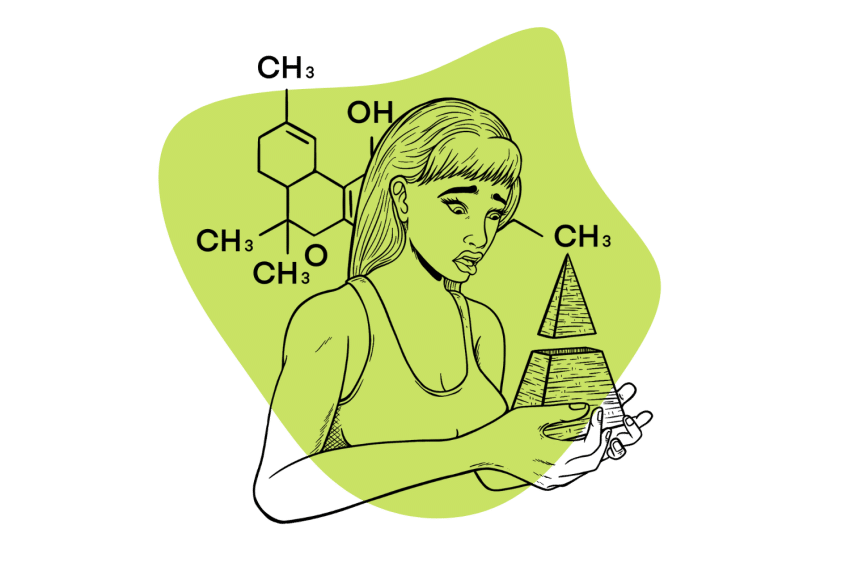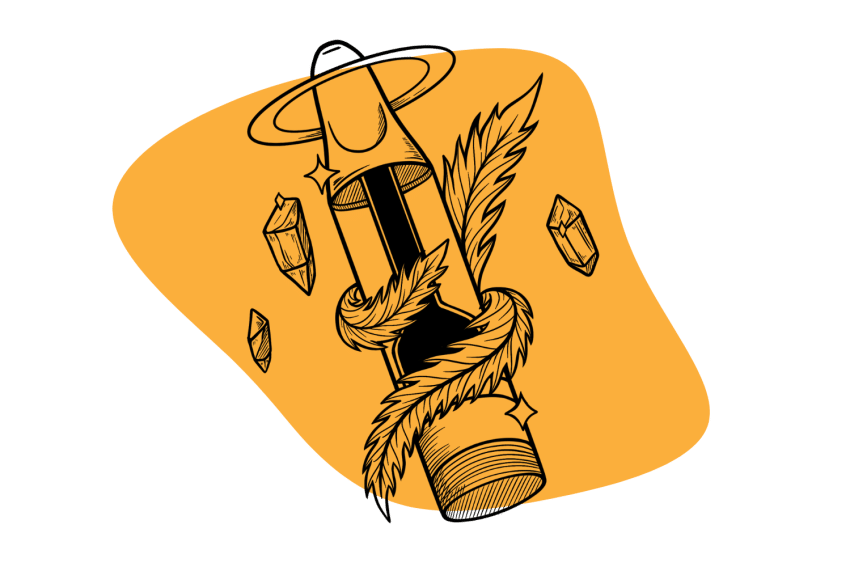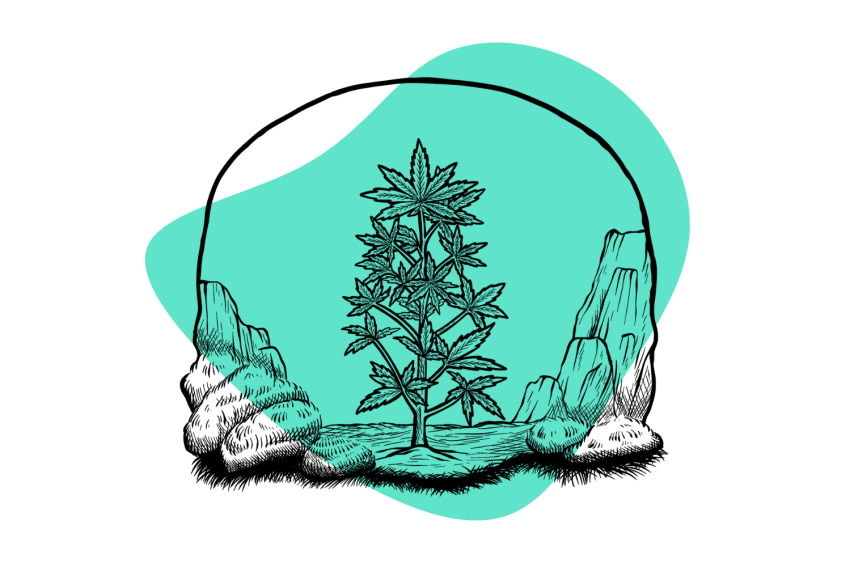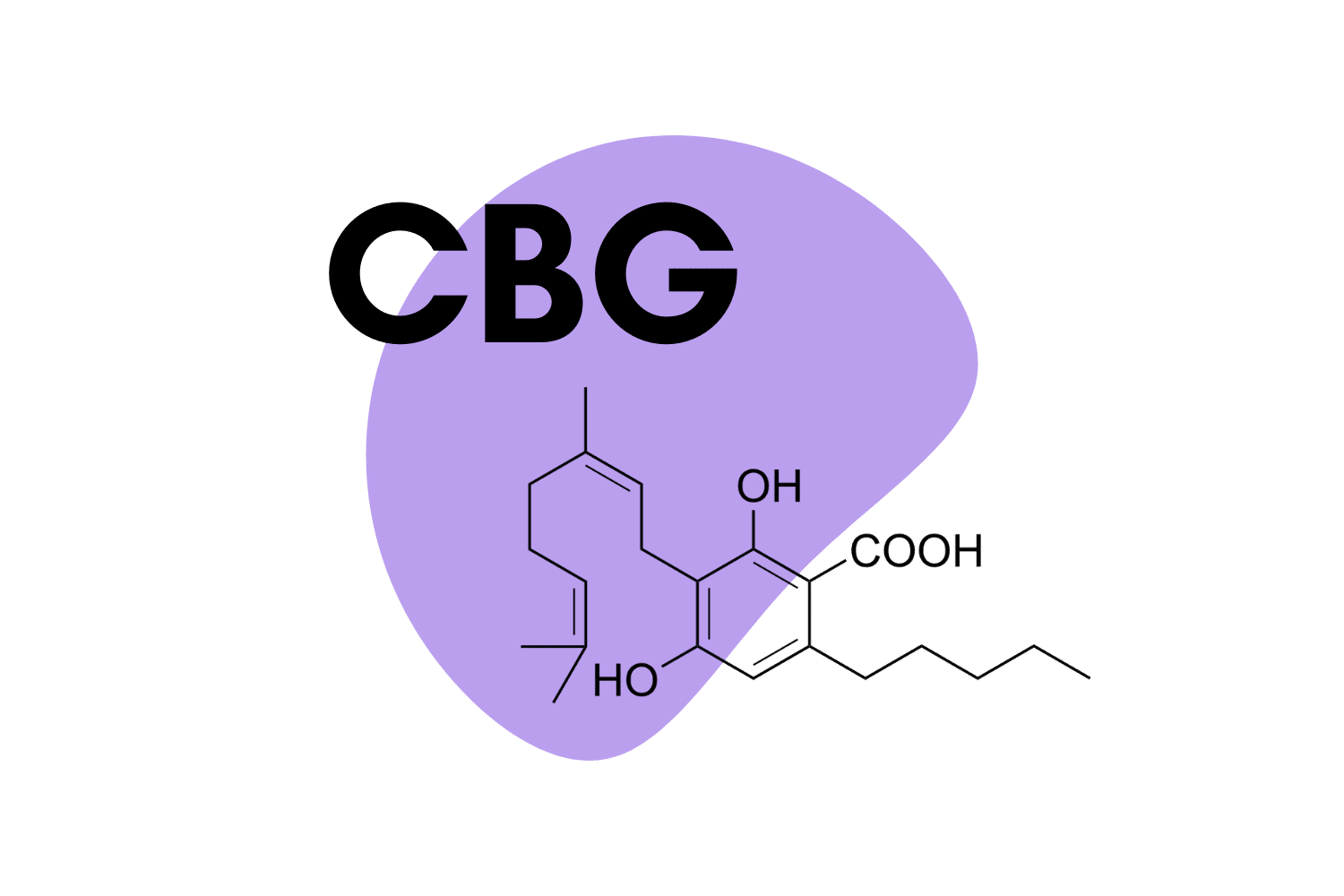Cannabis Edibles 101: Where To Buy, How to Make, & How Much to Take
Believe it or not, but you probably have access to legal THC, which means you can buy all kinds of edibles.
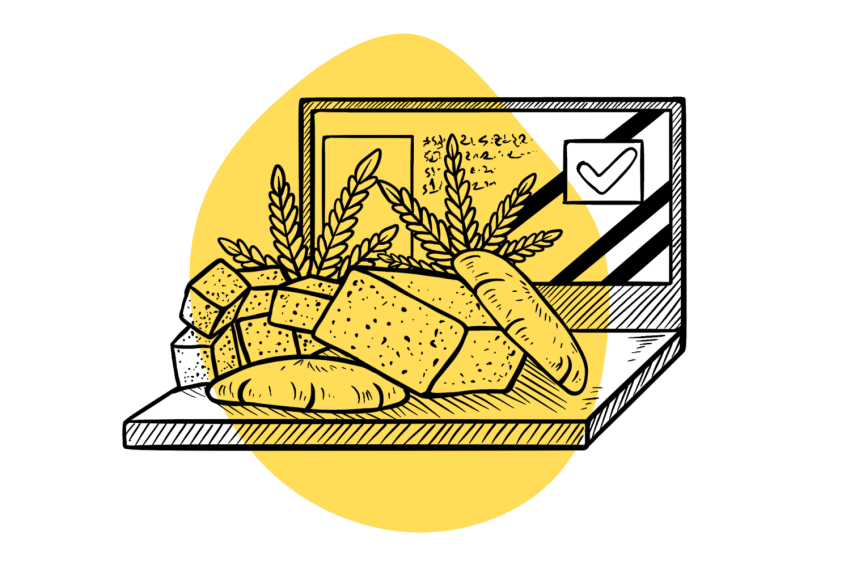
THC (delta-9 tetrahydrocannabinol) is still a controlled substance in the US and a lot of other places. Shockingly, that doesn’t mean you can’t buy it legally.
I’ll walk through the different THC variants, how and where to find the best THC edibles, and the legal loophole that makes it all possible in all 50 states.
Plus, I’ll explain how to make your own edibles in case you want to experiment (or save money).
Types of Cannabis Edibles: Gummies | Tinctures & Oils | Seltzers | Honey | Syrups
Top Brands: Area 52 | Moonwlkr | Tre House | Cycling Frog | Koi CBD
Top 5 Brands Selling Legal Cannabis Edibles (USA)
We have a few personal favorites, ones we actually use and trust, so feel free to check them out or see what else is out there.
1. Area 52
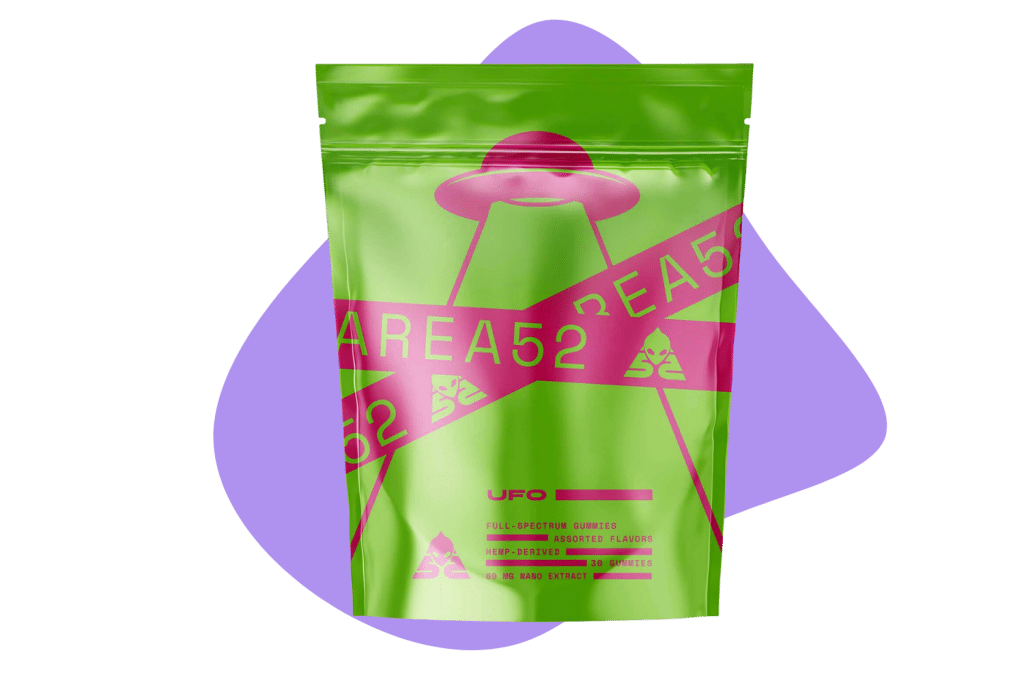
Area 52 is hard to beat — they’re incredibly diligent in every way, including quality, potency, and taste. It’s obvious they strive to rise far above the competition, and they do. They’re so sure about their products, they even have a money-back guarantee, on the off chance you’re not happy.
Everything is lab-tested, so you don’t have to worry about anything unwanted ending up in your gummies.
Their only downside is the lack of selection, but even then, that’s not much to complain about. They have delta-8, delta-9, HHC, and amanita gummies, along with other functional gummies for sleep, immunity, and relaxation.
They also sell vapes, tinctures, and pre-rolls if you want something beyond edibles.
Edible Categories Offered:
- Delta-8 THC Gummies
- Delta-8 THC Tinctures
- Delta-9 THC Gummies
- Delta-9 THC Tinctures
- HHC gummies
- Delta-8 THC Honey
- Amanita Muscaria Gummies (With THC)
2. Moonwlkr
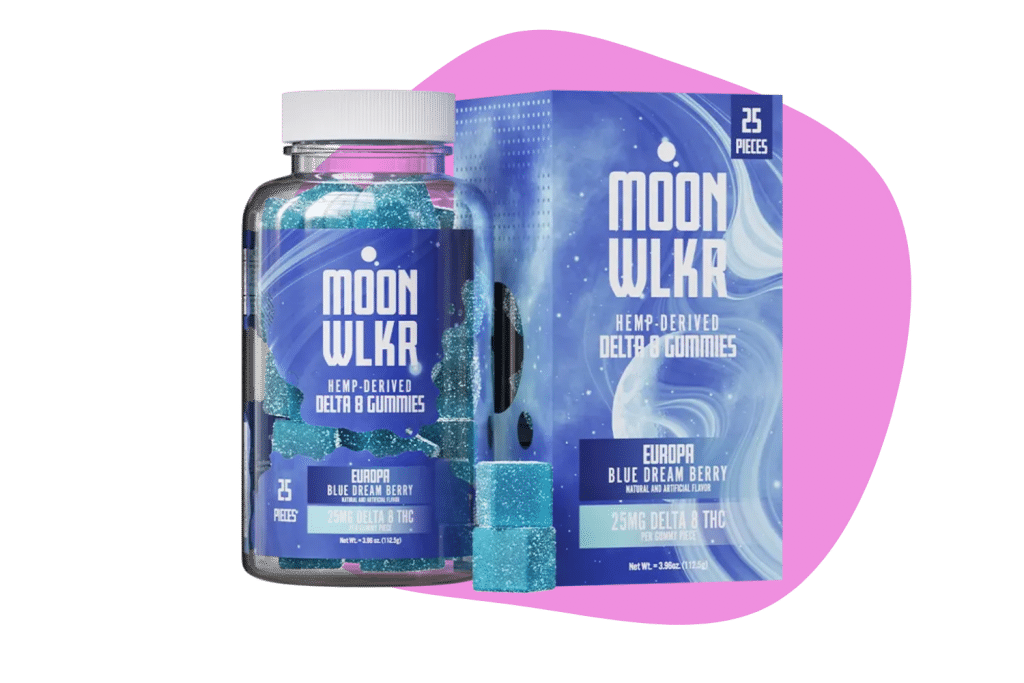
Moonwlkr is another brand focused on quality. You can find HHC, delta-8, delta-9, THC-P, THC-V, and amanita gummies in a decent selection of flavors and some vapes and tinctures.
Try one of their sample packs if you’re unsure what you want.
MoonWlkr tests its products, and you can find the results on the website.
3. Tre House
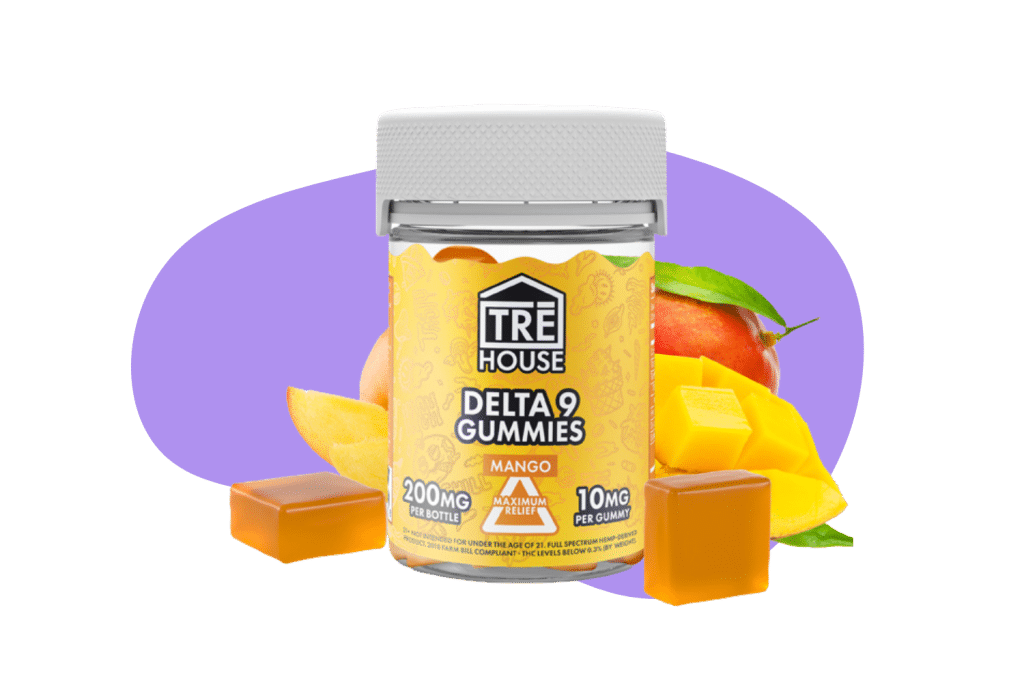
Tre House offers an impressive selection of THC edibles, as well as other psychoactive gummies, chocolates, and other edible products. The quality is relatively high despite the impressive volume of SKUs this company has available. Most larger companies experience a noteable drop in product quality the more stuff they have available, but we haven’t found this with Tre House.
Edible Categories Offered:
- Delta-9 THC Gummies
- Delta-8 THC Gummies
- HHC Gummies
- Magic Mushroom Gummies
4. Cycling Frog Artisinal Extracts
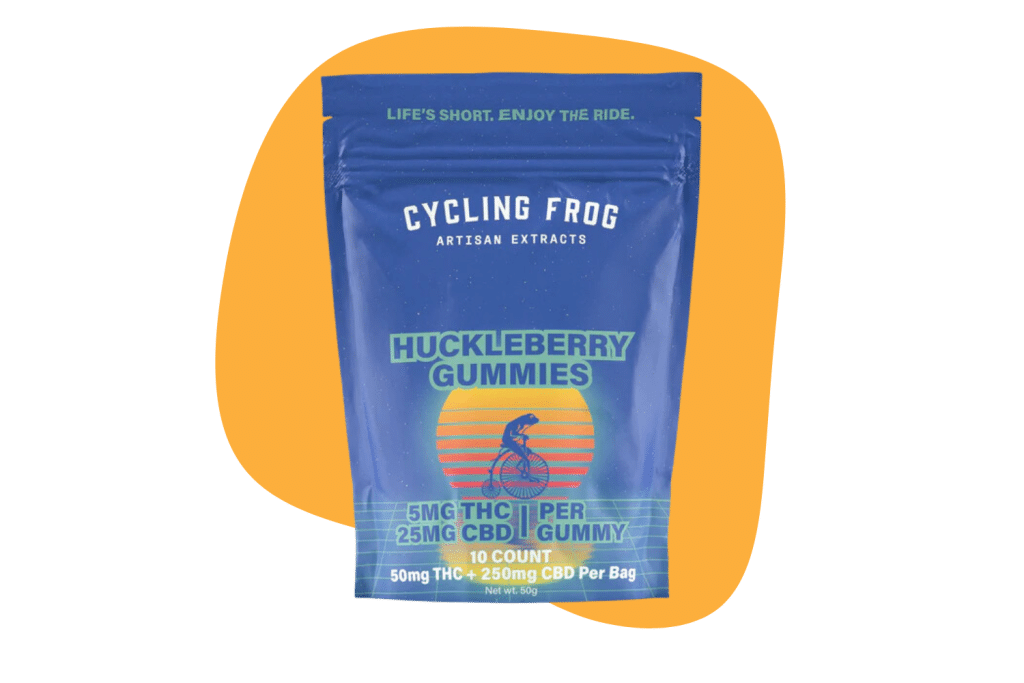
Cycling Frog is our favorite brand for all-natural, raw hemp extract products. There are no modified cannabinoids in any of these products (such as HHC or delta-8 THC) — just raw, unadulterated, concentrated hemp extract (mostly delta-9 THC, CBD, CBC, and other trace cannabinoids).
This company offers a small selection of high-quality THC edibles — definitely worth checking out.
Edible Categories Offered:
- Delta-9 THC Gummies
- Delta-9 THC Seltzers
- Delta-9 THC Mints
- Live Resin Gummies
5. Koi CBD
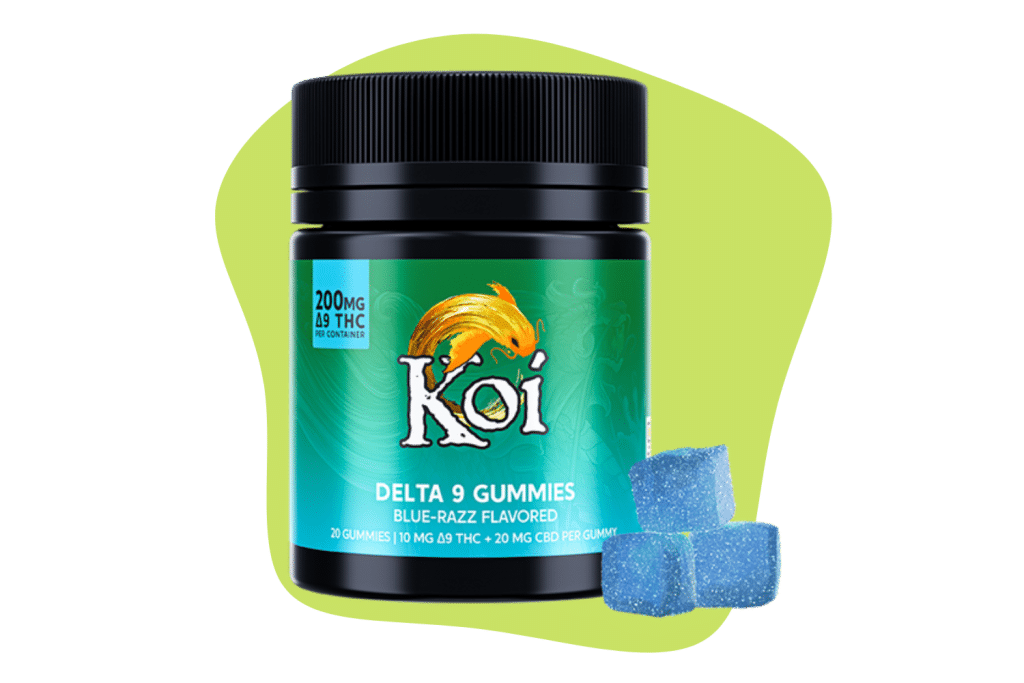
Koi CBD spent several years focusing purely on CBD extracts but has since branched out to all kinds of active and inactive edibles. Some of their most innovative blends include their high-powered Dragon Gummies and their anti-appetite THCV & ACV gummies.
Edible Categories Offered:
- Dragon Blend Gummies
- Delta-8 THC Gummies
- Delta-9 THC Gummies
- THCV + ACV Gummies
- Delta-8 THC Tinctures
Types of Cannabis Edibles
Cannabis edibles come in all different forms. The most popular, by far, are THC-infused gummy candies. Oils or tinctures are a close second.
There’s no right or wrong type of edible — the best option is always the one that interests you the most.
With that said, some are more “efficient” than others. Gummies and oils are popular because they’re cheap to make, have impressively long shelf lives, and do a good job at masking the bitter and herby taste of raw hemp extract.
Baked edibles like brownies and cookies are great, too, but they won’t last long before the active ingredients start to break down. These options are best for making yourself at home with fresh weed or distillate.
Gummies
Cannabis-infused gummies are the most popular edible product by far. Just about every company in the cannabis space right now (both gray market and legal market alike) sells some form of gummies.
They’re super easy to make (you can even make them yourself at home), highly potent, and are a good way to preserve the cannabinoids. As a result, gummies offer an efficient way to use cannabis and have a long shelf-life — allowing users to stock up when the price is cheap.
Related Guides: Best Delta-9 THC Gummies | Best Delta-8 THC Gummies | Best THC Gummies (All)
Tinctures & Oils
Cannabinoid tinctures are made by dissolving concentrated THC distillates in MCT oil (or another polyunsaturated oil). Tinctures are traditionally made by extracting the active ingredients of cannabis using high-grade alcohol.
The main benefits of tinctures include their ease of use, precision in measuring out specific dosages, long shelf life, and rapid absorption (if taken sublingually under the tongue).
Related Guide: Best THC Oils
Brownies, Cookies, & Other Baked Goods
You’re not likely to find baked goods available from online cannabis companies, but you can often find them for sale at local parks or dispensaries.
The problem with this form of edible is that they don’t last very long. After they’re baked, you have to consume them within about a week or so. Any longer and they become stale, moldy, or impotent.
It’s easy to bake with cannabis at home too! Check out some of our helpful guides on how to make your own cannabis edibles.
Seltzers & Drinks
The seltzer and drink category is relatively small. Not many companies are taking the time to produce these products because of the substantial legal hurdles involved with making them. Canned drink products have strict manufacturing limitations in place already — when you start adding THC into the mix things get complicated (and expensive) real fast.
The best THC seltzers we’ve tried so far come from Cycling Frog.
Honey
There was a time when THC-infused honey was all the rage. The idea was that you could either knock a shot or two back directly or stir it into some tea or coffee. The idea was sound, but people just weren’t buying. Only a few companies still offer these products — for example, Area 52s delta-8 THC sticks.
Syrups
A few companies started selling THC-infused syrups designed to imitate the effects of lean (AKA sizzurp, Dirty Sprite, or purple syrup) — which is a blend of codeine cough syrup, promethazine, and Sprite. The effects of lean subtly resemble that of cannabinoids — it makes users feel calm, relaxed, and mildly intoxicated.
The best syrups we’ve tried so far come from Tre House (made using just cannabinoids, no codeine or promethazine, don’t worry).
Different Types of THC Found in Edibles
Once the Farm Bill granted us the freedom, human ingenuity and desperation joined forces and gave birth to the many delta THCs we see today — delta-8, delta-10, HHC, THC-O, etc. There are more types of THC now than we can even count.
It can be incredibly confusing when you’re trying to buy THC edibles. Obviously, the THCs are different, but how?
Here’s a chart for an overview of the most common ones; keep reading for details:
| THC Type | Effects | Side Effects | Legality |
| Delta-9 THC | Produces the characteristic high associated with cannabis: euphoria, relaxation, and talkativeness. | Paranoia, anxiety, dry mouth, red eyes, hunger, lethargy. | Schedule I substances, when derived from cannabis |
| Delta-8 THC | Roughly half as potent as delta-9. | Similar to delta-9 but less likely to cause paranoia and anxiety. | Unregulated federally, but individual states have banned or restricted it |
| Delta-10 THC | Roughly half as potent as delta-9. | Similar to delta-9: Drowsiness, headaches, and dizziness are common. | Unregulated federally, but individual states have banned or restricted it |
| THC-O | Roughly 3 times more potent than delta-9. | Increased risk for paranoia, anxiety, and discomfort, similar to delta-9. | Unregulated federally, but individual states have banned or restricted it |
| THCA | No psychoactive effects; it might help with inflammation and IBS, and it is neuroprotective. | Few side effects reported. | Unregulated federally, but individual states have banned or restricted it |
| THCP | Psychoactive effects are up to 33X stronger than delta-9. | Much higher risk of side effects due to exceptional potency. Side effects similar to delta-9. | Unregulated federally, but individual states have banned or restricted it |
| THCV | Roughly 25% as potent as delta-9. | Few side effects reported. | Unregulated federally, but individual states have banned or restricted it |
| HHC | Roughly 75% as potent as delta-9. | Similar to delta-9, but long-term effects are largely unknown due to lack of research. | It could be considered a controlled substance; individual states may have banned or restricted it. |
Delta-9 THC
Delta-9 THC (delta-9-tetrahydrocannabinol) is the original cannabinoid and the cause of weed’s intoxicating effects. This is the one being referred to when you hear ‘THC.’
Cannabinoids like delta-9 THC have a chain of carbon atoms; D9 has a double bond on the ninth atom.
It binds to CB 1 and 2 receptors, giving it a wide range of effects, including medicinal ones. It gets you high, but it’s also used for pain, chemo-induced vomiting, insomnia, and inflammation.
Side effects include the standard dry mouth, red eyes, munchies, lethargy, impaired coordination, paranoia, anxiety, and loss of short-term memory.
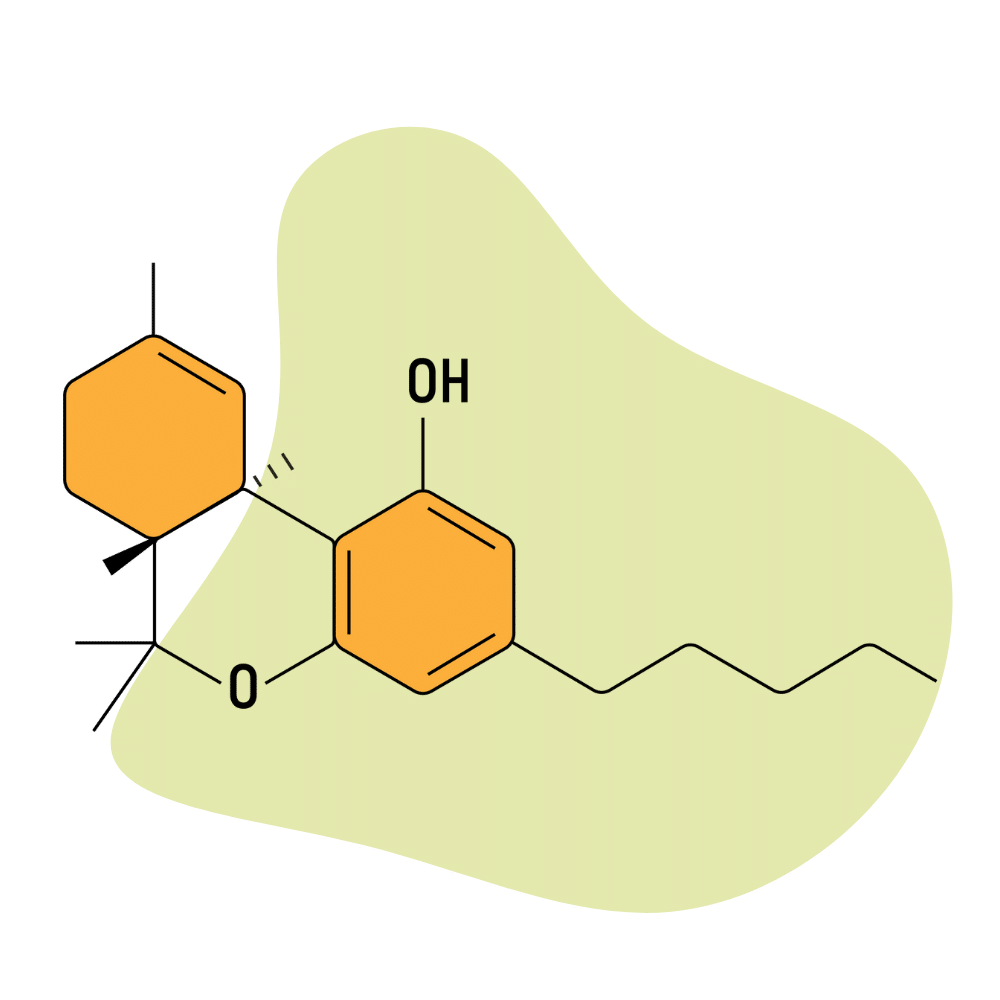
Delta-8 THC
Delta-8 THC (delta-8-tetrahydrocannabinol) is very similar to delta-9, except the double bond is on the eighth carbon atom, is less potent than D9, and is nowhere near as plentiful in the plant. It requires a special process to get enough D8 to do anything with, which, unfortunately, requires chemicals and is why it’s so important to trust your source for it.
The effects are pretty much the same, except it’s less likely to cause couch-lock and is not usually as intense.
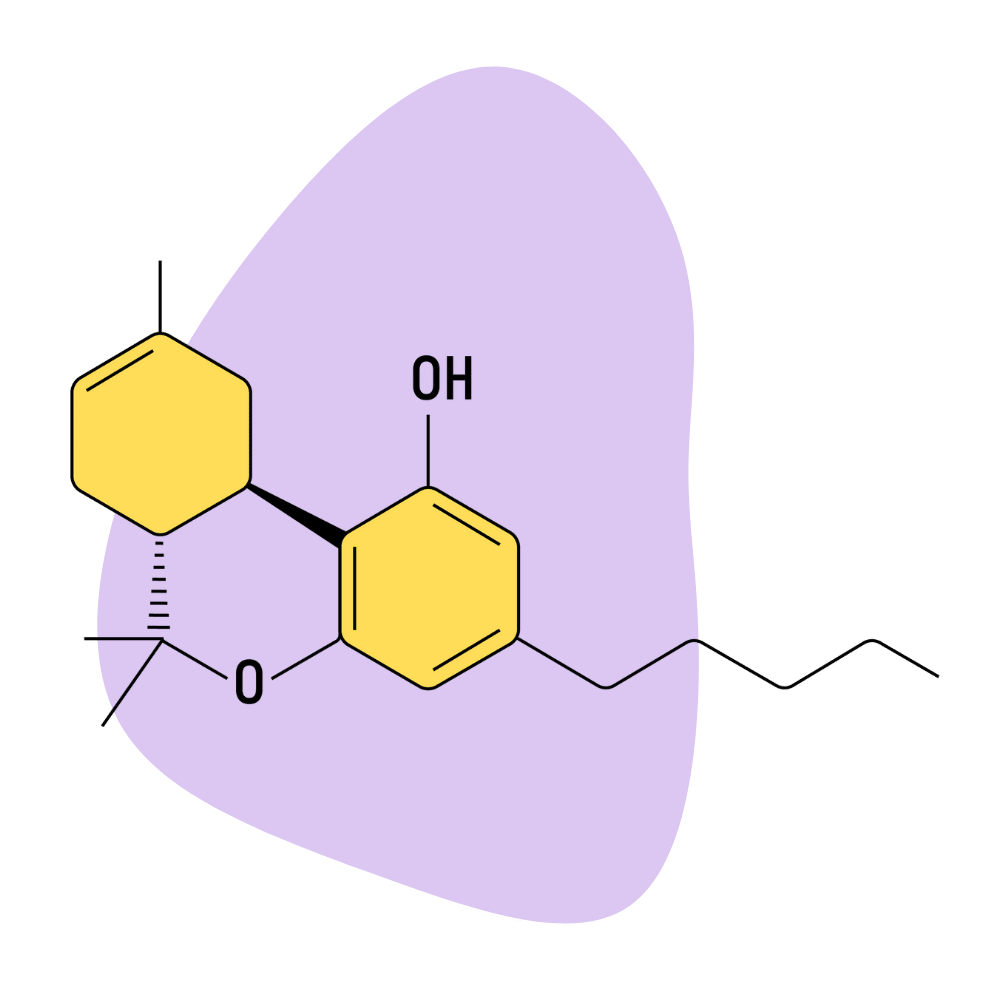
Delta-10 THC
Delta-10 THC (delta-10-tetrahydrocannabinol) is, again, about the same as D8 and D9 but even less potent and typically more energizing.
Its double bond is on the tenth carbon, and it will give you the same effects, but to a lesser degree.
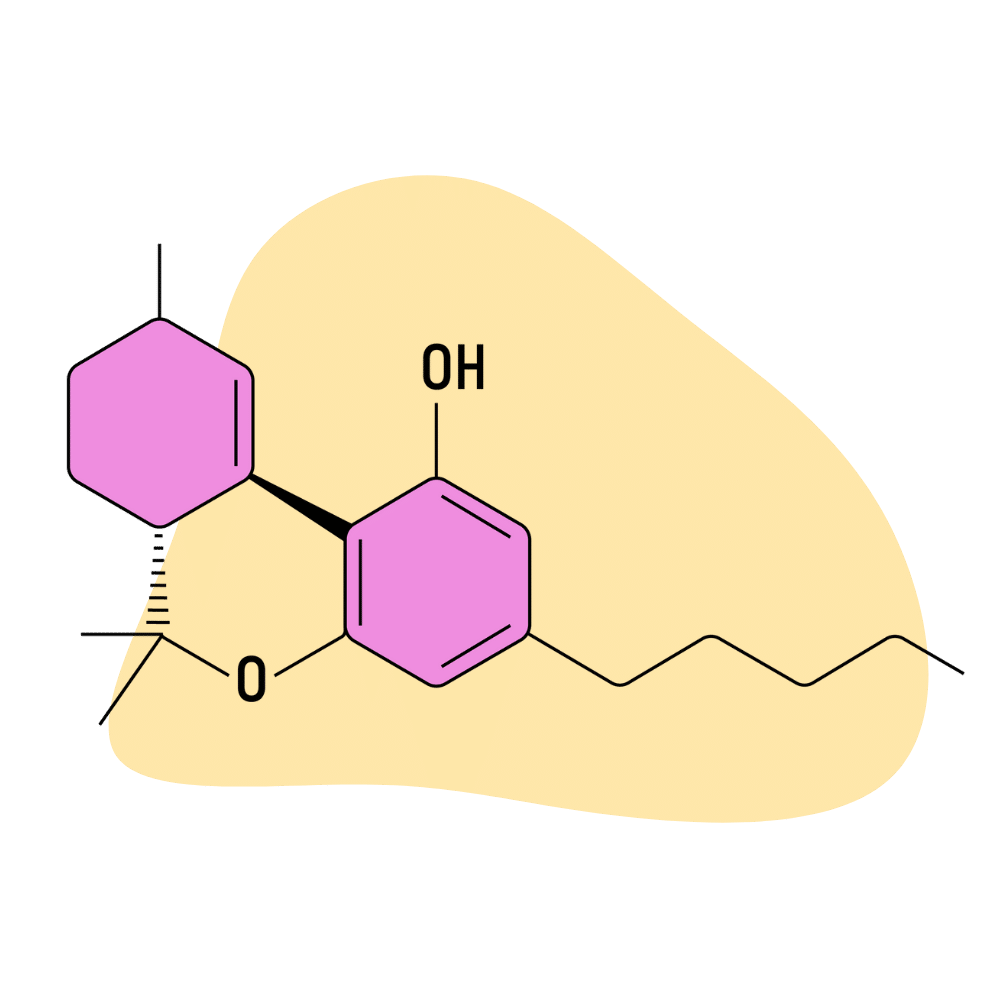
THC-O
THC-O-acetate is semi-synthetic and derived from D8. It’s more potent than delta-9, to the point where there were claims it’s psychedelic, but that was disproved. Still, it’s potent.
The problem with THC-O is it’s an acetate, which can produce ketene when heated, so smoking or vaping THC-O can be dangerous, similar to the problems associated with vitamin E in vape and cigarette products.
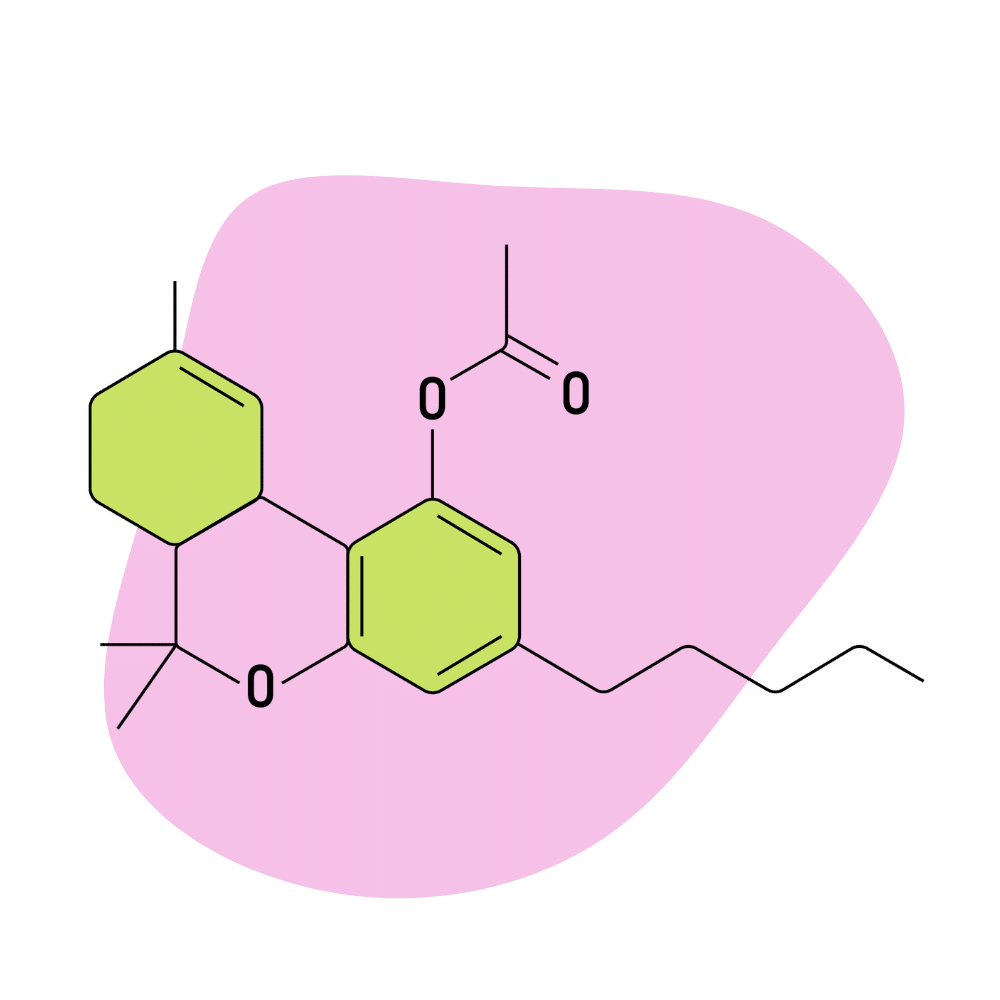
THCA
THCA (tetrahydrocannabinolic acid) is the precursor to THC. It doesn’t have psychoactive effects but turns into THC once it’s heated. This is the cannabinoid percentage you want to pay attention to when you’re buying flower, vapes, anything that’s heated.
Medicinally, it’s similar to THC but seems to be better at treating inflammation and seizures. Time will tell.
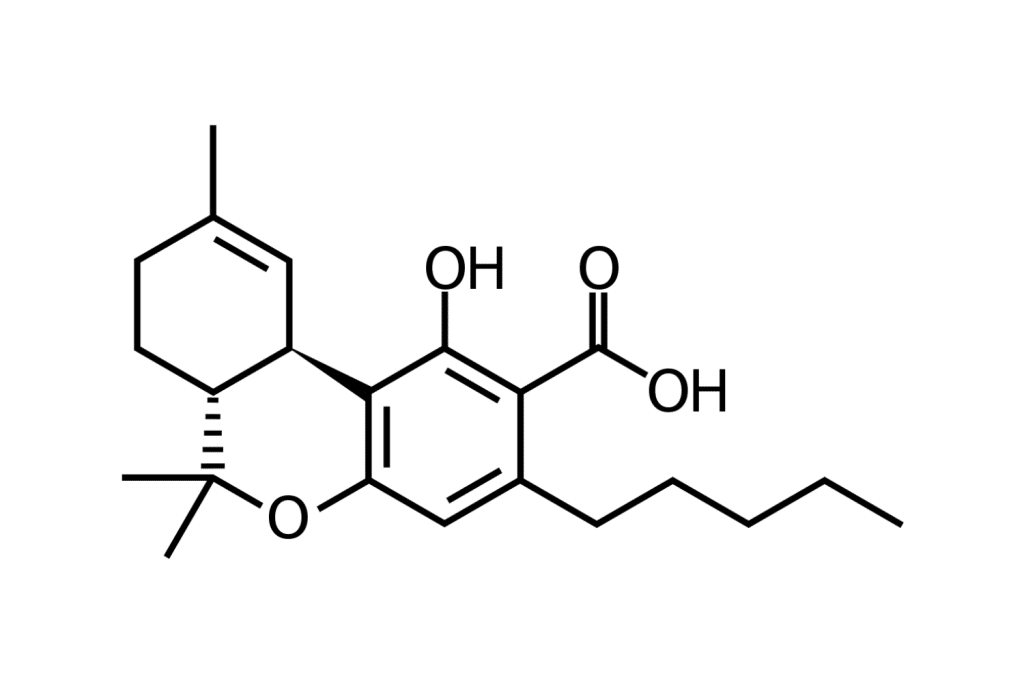
THCP
THC-P (tetrahydrocannabiphorol) is structurally similar to delta-9 THC but has a seven-term alkyl side chain – the longer this chain is, the better it binds to the CB1 receptor.
Its effects are similar to THC but about 30 times more potent. While this means a strong high, it also means it can become overwhelming quickly, so tread carefully.
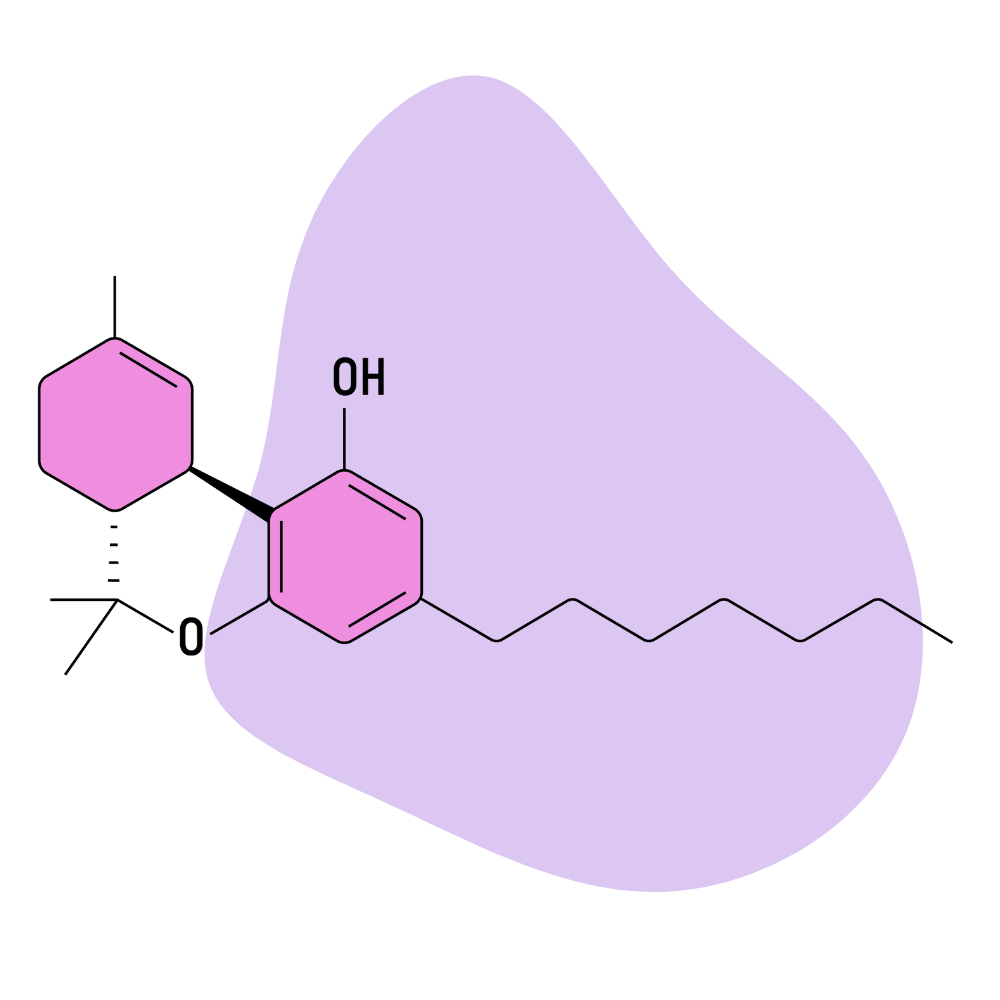
THCV
THC-V (tetrahydrocannabivarin) is also called “diet weed” because, unlike other forms of THC, it actually reduces your appetite.
It also can help increase energy and focus, reduce seizures and anxiety, increase metabolism, provide glycemic control, and is helpful for type 2 diabetes.
THC-V is a CB1 antagonist and reverse agonist but can be a CB2 agonist or antagonist, depending on the dose. It also interacts with TRPV-1 receptors, which is how it affects metabolism.
It’s well-tolerated, and side effects include tiredness, trouble falling asleep, nausea, decreased appetite, and diarrhea.
According to participants in one study, 10 mg can induce some THC-like effects, but they’re very mild.
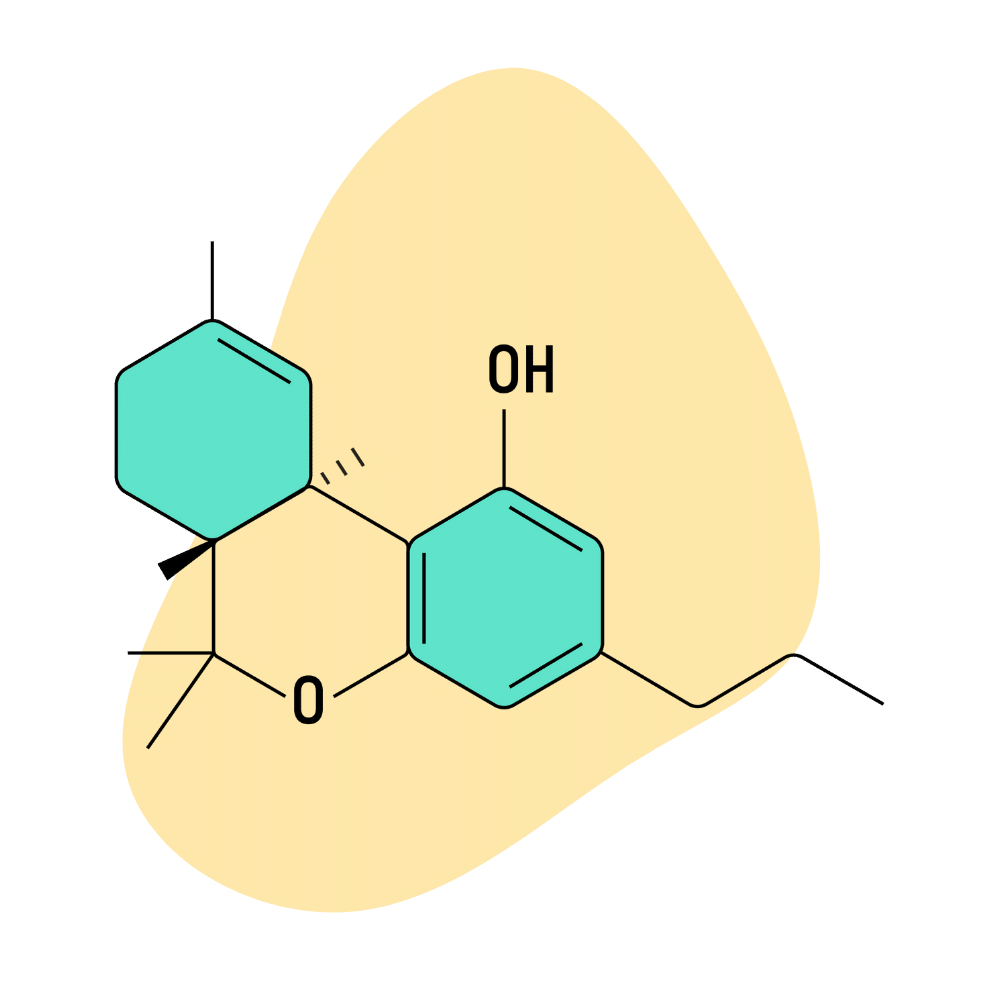
HHC
HHC, or hexohydrocannabinol, is hydrogenated THC, so the effects are similar, yet this cannabinoid is quite different from the others.
First, the potency varies because there are actually two types of HHC. One binds well to CB1 and CB2 receptors, while the other doesn’t quite mesh with them. It’s too costly to isolate the better one, so manufacturers try to make sure there’s more of the good one in the final product. Unfortunately, there’s only so much they can do, so it fluctuates a lot.
Second, the laws around HHC are even hazier because it’s not technically THC but could be considered synthetic.
Third, it’s possible, though unproven, that HHC doesn’t show up on drug tests. Is this true? Maybe, maybe not, so be careful.
Many people say HHC gives a good cerebral high and can be energizing.
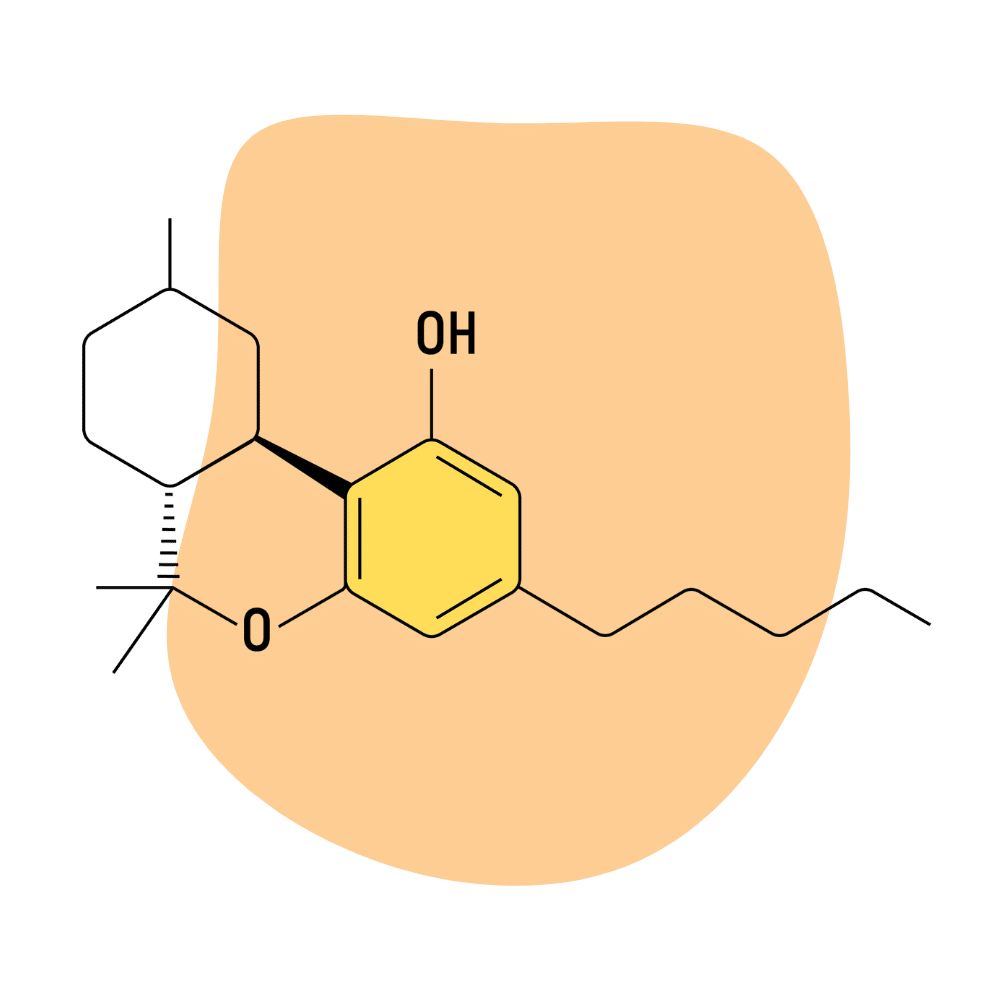
Are Cannabis Edibles Legal Where I Live?
No one’s complaining about the lack of laws, except for a few state lawmakers who closed that loophole faster than you can say “special interest.” I’ll go over the state laws regarding delta-8 below (according to the National Cannabis Industry Association) because it’s more likely other cannabinoids will be off the table, too.
However, it’s always best to check with your local government to make sure. Laws change, and I’m not perfect.
Of course, if recreational marijuana is legal where you live, you’re not restricted to hemp-derived THC, and you can order all kinds of things online as long as it’s shipped within the state.
| State/Country | Marijuana | Delta-8 THC | HHC |
| Alabama | 💊 Medical Use Only | ✅ Unregulated | ✅ Unregulated |
| Alaska | ✅ Recreational Use Legal | 🟡 THC Limits (0.3%) | 🟡 THC Limits (0.3%) |
| Arizona | ✅ Recreational Use Legal | ❌ Strictly Illegal | ✅ Unregulated |
| Arkansas | 💊 Medical Use Only | 🟡 THC Limits (0.3%) | 🟡 THC Limits (0.3%) |
| California | ✅ Recreational Use Legal | 🟡 THC Limits (0.3%) | 🟡 THC Limits (0.3%) |
| Colorado | ✅ Recreational Use Legal | ❌ Strictly Illegal | ❌ Strictly Illegal |
| Connecticut | ✅ Recreational Use Legal | 🟡 Legal (Restrictions) | 🟡 THC Limits (0.3%) |
| Delaware | ✅ Recreational Use Legal | 🟡 THC Limits (0.3%) | 🟡 THC Limits (0.3%) |
| Florida | 💊 Medical Use Only | ✅ Unregulated | ✅ Unregulated |
| Georgia | 💊 Medical Use Only | ✅ Unregulated | ✅ Unregulated |
| Hawaii | 💊 Medical Use Only | 🟡 THC Limits (0.3%) | 🟡 THC Limits (0.3%) |
| Idaho | ❌ Strictly Illegal | 🟡 THC Limits (0.3%) | 🟡 THC Limits (0.3%) |
| Illinois | ✅ Recreational Use Legal | ✅ Unregulated | ✅ Unregulated |
| Indiana | ❌ Strictly Illegal | ✅ Unregulated | ✅ Unregulated |
| Iowa | 💊 Medical Use Only | 🟡 THC Limits (0.3%) | 🟡 THC Limits (0.3%) |
| Kansas | ❌ Strictly Illegal | 🟡 THC Limits (0.3%) | 🟡 THC Limits (0.3%) |
| Kentucky | ❌ Strictly Illegal | ✅ Unregulated | ✅ Unregulated |
| Louisiana | 💊 Medical Use Only | 🟡 THC Limits (0.3%) | 🟡 THC Limits (0.3%) |
| Maine | ✅ Recreational Use Legal | ✅ Unregulated | ✅ Unregulated |
| Maryland | 💊 Medical Use Only | ✅ Unregulated | ✅ Unregulated |
| Massachusetts | ✅ Recreational Use Legal | 🟡 THC Limits (0.3%) | 🟡 THC Limits (0.3%) |
| Michigan | ✅ Recreational Use Legal | 🟡 THC Limits (0.3%) | 🟡 THC Limits (0.3%) |
| Minnesota | ✅ Recreational Use Legal | 🟡 THC Limits (0.3%) | 🟡 THC Limits (0.3%) |
| Mississippi | 💊 Medical Use Only | ✅ Unregulated | ✅ Unregulated |
| Missouri | ✅ Recreational Use Legal | ✅ Unregulated | ✅ Unregulated |
| Montana | ✅ Recreational Use Legal | 🟡 THC Limits (0.3%) | 🟡 THC Limits (0.3%) |
| Nebraska | ❌ Strictly Illegal | ✅ Unregulated | ✅ Unregulated |
| Nevada | ✅ Recreational Use Legal | 🟡 THC Limits (0.3%) | 🟡 THC Limits (0.3%) |
| New Hampshire | 💊 Medical Use Only | ✅ Unregulated | ✅ Unregulated |
| New Jersey | ✅ Recreational Use Legal | ✅ Unregulated | ✅ Unregulated |
| New Mexico | ✅ Recreational Use Legal | ✅ Unregulated | ✅ Unregulated |
| New York | ✅ Recreational Use Legal | 🟡 THC Limits (0.3%) | 🟡 THC Limits (0.3%) |
| North Carolina | ❌ Strictly Illegal | ✅ Unregulated | ✅ Unregulated |
| North Dakota | 💊 Medical Use Only | 🟡 THC Limits (0.3%) | 🟡 THC Limits (0.3%) |
| Ohio | 💊 Medical Use Only | 🟡 THC Limits (0.3%) | 🟡 THC Limits (0.3%) |
| Oklahoma | 💊 Medical Use Only | 🟡 THC Limits (0.3%) | 🟡 THC Limits (0.3%) |
| Oregon | ✅ Recreational Use Legal | 🟡 THC Limits (0.3%) | 🟡 THC Limits (0.3%) |
| Pennsylvania | 💊 Medical Use Only | ✅ Unregulated | ✅ Unregulated |
| Rhode Island | ✅ Recreational Use Legal | 🟡 THC Limits (0.3%) | 🟡 THC Limits (0.3%) |
| South Carolina | ❌ Strictly Illegal | 🟡 THC Limits (0.3%) | 🟡 THC Limits (0.3%) |
| South Dakota | ✅ Recreational Use Legal | ✅ Unregulated | ✅ Unregulated |
| Tennessee | ❌ Strictly Illegal | ✅ Unregulated | ✅ Unregulated |
| Texas | ❌ Strictly Illegal | ✅ Unregulated | ✅ Unregulated |
| Utah | 💊 Medical Use Only | 🟡 THC Limits (0.3%) | ❌ Strictly Illegal |
| Vermont | ✅ Recreational Use Legal | 🟡 THC Limits (0.3%) | 🟡 THC Limits (0.3%) |
| Virginia | ✅ Recreational Use Legal | ❌ Strictly Illegal | ✅ Unregulated |
| Washington | ✅ Recreational Use Legal | 🟡 THC Limits (0.3%) | 🟡 THC Limits (0.3%) |
| West Virginia | 💊 Medical Use Only | ✅ Unregulated | ✅ Unregulated |
| Wisconsin | ❌ Strictly Illegal | ✅ Unregulated | ✅ Unregulated |
| Wyoming | ❌ Strictly Illegal | ✅ Unregulated | ✅ Unregulated |
THC-O Laws
In 2023, the DEA made a statement clarifying that THC-O is a controlled substance. Since then, many companies have stopped selling it, though it’s still possible to buy.
If you decide to buy THC-O products, keep in mind that it could get you into trouble, though no one seems to be doing anything about it.
Some states may have passed laws regarding it as well.
THCa Laws
The following states have banned THCa:
- Arkansas
- Hawaii only (smokable THCa is banned)
- Idaho
- Kansas (only 0% THCa products are permitted)
- Louisiana (legal for patients with a medical card)
- Minnesota
- Mississippi (THCa flowers and concentrates over 0.30% THC)
- Oklahoma
- Oregon
- Utah (only those in the medical cannabis program can use any type of THC)
HHC Laws
Because HHC does not occur naturally in cannabis, it is considered synthetic and, therefore, federally illegal. However, just like with THC-O, the products are everywhere, and no one seems to care. That doesn’t mean you couldn’t get into trouble, so just be aware that the DEA does consider HHC to be a controlled substance.
States With Restrictions on Hemp
The following states have severe restrictions on all THC:
- Iowa
- Kansas
- Louisiana (all THCs must be under 8 mg per serving and 1% by dry weight)
- Minnesota (all THCs under 0.3% and less than 5 mg per serving)
- New Hampshire
- Virginia (2 mg serving limit or >25:1 CBD:THC ratio)
Do yourself a favor and stay up-to-date on your local laws. Take it one step further and be actively involved in making the changes you would like to see.
Related: A Rundown of Weed Laws In the US, State by State
How to Find the Best (& Legal) THC Edibles
The sky’s the limit when it comes to THC edibles — brownies, cookies, candy, and drinks are popular. However, it’s harder to find some of the newer cannabinoids in anything besides gummies. They’re just all-around more practical.
A quick internet search will bring up plenty of vendors, but don’t get too excited — quality is hard to come by.
As mentioned in the previous section, these legal THC variants are usually produced with chemicals and complex processes — not something you want to leave in the hands of just anyone.
How do you know which brands to trust? Here’s what to look for:
1. Third-Party Lab Tests
Any company worth considering will have its products tested by third-party labs and make the results available to you. Look over the results and make sure they’re up-to-date for the right product, and test for chemicals and impurities, not just cannabinoids.
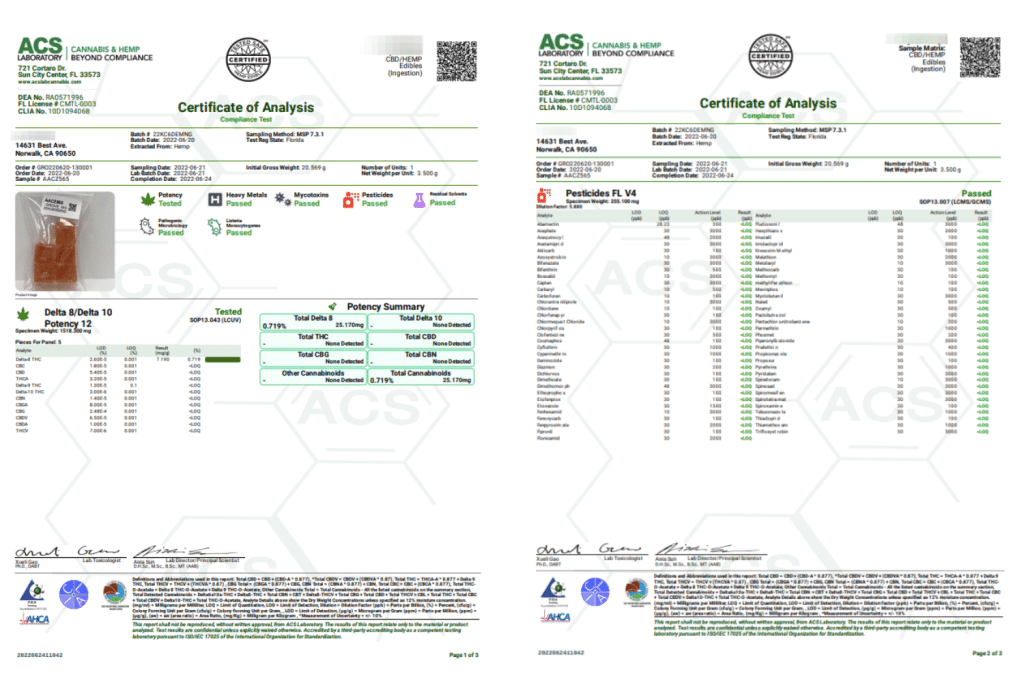
2. Customer Reviews
It’s possible to find a really solid company that just doesn’t have many reviews on their website or elsewhere. If they have good lab results and the other things on this list checked off, you’re probably okay taking the risk.
When reviews are available, check them over to make sure they aren’t fake. Read about ten, and if there seems to be a pattern or something seems off, trust your gut.
Reddit and review websites like TrustPilot are great places to find people’s opinions.
3. Legit Website
You can learn a lot from a company’s website. If it’s gimmicky, outdated, or poorly done (think sloppy, misspelled words, contradictory statements, unattractive images), its products probably are, too. A website is supposed to tell the world who you are as a brand, so believe them if that’s the image they want to portray.
Beyond the feel of it, also look at what’s said (and not said!).
Because these cannabinoids are already on shaky legal ground, any trustworthy company will spell out why the products are legal and what’s in them. Any time you hear vague or unclear terminology, go elsewhere.
4. Legality
Stick with companies that function legally. If they’re willing to break the law in one area, they’re likely to cut corners and break the law in other areas, putting you at risk.
This varies a lot by state — there could be no or very few regulations in place, or there could be laws regarding packaging, labeling, minimum age, etc. Pay attention to what they’re willing and not willing to do when it comes to making money. It says a lot about their trustworthiness.
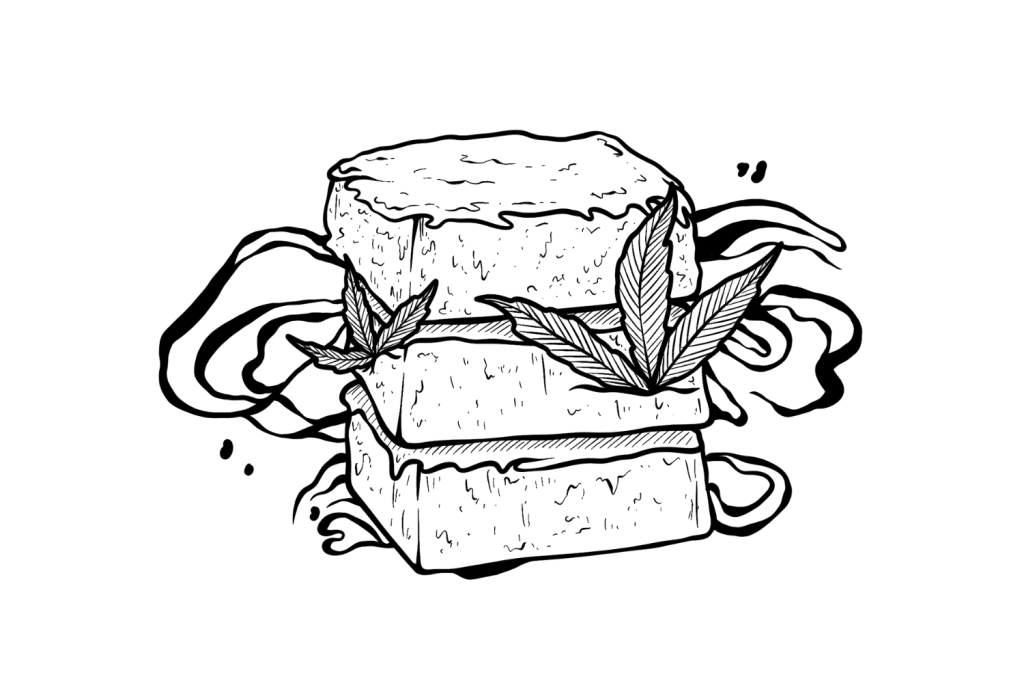
How to Make Your Own THC Edibles
There’s nothing easier than ordering THC edibles, but there’s something beautiful about making your own, and it’s easier than you think.
1. What Kind of Edible?
First, decide what kind of edible you want to make, and then you’ll need to make or buy cannabutter or THC oil, depending on the recipe. A lot of the time, but not always, you can use either. I’ll cover the basics, but we have in-depth guides and recipes you can check out for more information.
- How to Decarb Weed: A No-Fluff Guide for Beginners
- How to Make Weed Gummies
- How to Make Weed Brownies
- How to Make Weed Tea
2. Cannabutter or THC Oil?
Next, you’ll need a source of THC — cannabutter and THC oil are the best ways to add THC to your food.
If your recipe doesn’t call for butter or cooking oil, use THC oil. Those are potent, so it doesn’t take much to get the job done.
You can make both at home or buy them if you don’t want the hassle. The oils are easier to find, but some places sell cannabutter.
The following articles can help you:
3. Cooking With THC
You can add cannabutter or THC oil to almost any recipe, but there are things to remember.
- Be aware of dosage — You need to figure out how much of the butter or oil to add and make sure the servings are divided properly. Or, if it’s a single serving, make sure you’ll eat it all, or it won’t be too potent.
- Watch the heat — Cooking cannabutter or THC oil for too long under intense heat can make it less potent. You can always add some butter or oil to the final product if you’re not sure. This is where the oils and tinctures come in handy. A few drops is all it takes.
- Label and store properly — Make sure you keep all THC edibles labeled, stored properly, and out of the reach of children and animals. You don’t want your hard work to go to waste because you let the brownies dry out, and you definitely don’t want kids or your pet to get into them.
- Never “share” with unsuspecting friends — Don’t surprise your friend (or anyone else!) with an experience they didn’t ask for. There could be a dozen reasons they don’t want to, even if they usually join you, so be respectful.
- Be creative — Have fun in the kitchen! Tweak recipes to your liking, and don’t be afraid to play around with your ideas.
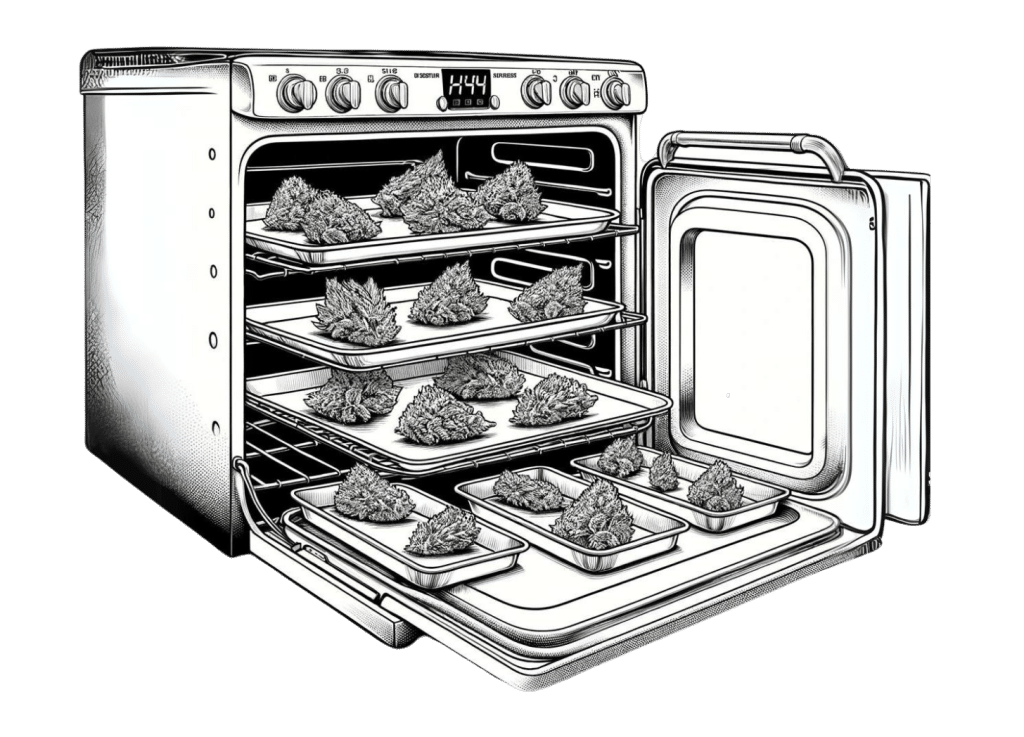
FAQs: Buying Cannabis Edibles
We can’t cover everything, but keep reading if you have questions — maybe I’ll answer it here. Otherwise, check out our website for more information.
1. Why are delta-9 THC edibles legal where I live now?
It comes down to human ingenuity. People took a law that allowed the production of hemp and hemp products and found a way to get a variety of cannabinoids from the plant. As long as the delta-8, delta-9, etc., is derived from hemp, it’s legal. Note that some states have banned these products, but they’re federally unregulated.
2. Are there high-quality THC edibles in gas stations and head shops?
This is a tough question, but generally, no. They’re constantly improving, but the quality tends to be lower than what you can buy online — if you know where to buy from.
You can find decent products, but you have to look for testing, read the ingredients, and make sure it’s legitimate.
The biggest reasons to shop online, beyond quality, are price and selection. Online vendors are usually cheaper, and you have the added benefit of having more to choose from.
3. How long does it take for THC edibles to kick in?
Edibles can take a while to kick in — about an hour — so be patient, especially if you’ve never used them before. It’s easy to assume they’re not working or strong enough and take more, but that’s how you end up overwhelmed or miserable.
Start with less than the suggested amount and see how it affects you, then next time you can have a better idea of how much you’ll need.
4. Can I travel with THC edibles?
Traveling with THC edibles is a gray area. Within states where it’s legal, you generally can travel with them, but crossing state lines gets complicated due to federal laws against transporting cannabis products across state boundaries. We highly recommend you leave your THC edibles behind if you plan to get on a plane, regardless of where you’re going.
5. How do I store my THC edibles to keep them fresh?
THC edibles should be stored in a cool, dark place to preserve their potency and prevent them from spoiling. Avoid leaving them in direct sunlight or in a car where temperatures can fluctuate drastically. Some edibles may require refrigeration — check the packaging for specific storage instructions. Properly sealing your edibles in an airtight container can also help keep them fresh and prevent them from being exposed to air, which can degrade the cannabinoids over time.
6. Can THC edibles expire or lose potency over time?
Yes, THC edibles can expire and lose potency. Like any food product, edibles have a shelf life, and their quality can degrade over time. To ensure your edibles remain as potent as possible for as long as possible, we recommend always sealing the package on your THC edibles prior to storage, and avoid leaving them in a hot location for an extended amount of time.

